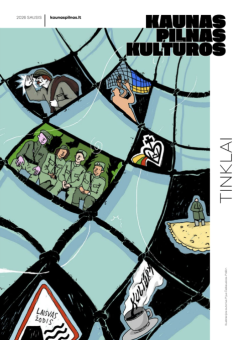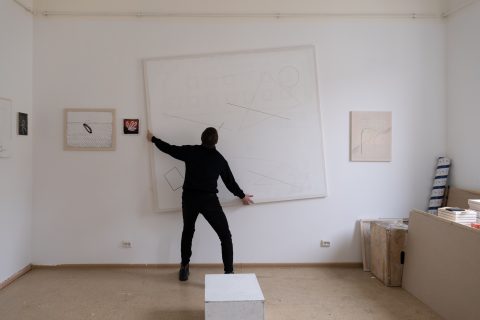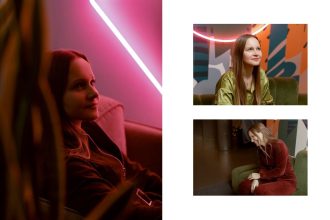“As long as I manage to do it all, I am not planning on stopping,” Mantas Bendžius says when asked if he is tired of balancing work in several theaters, his musical career, and the important things in a young person’s life. The actor from Jurbarkas is well known to the visitors of the National Kaunas Drama Theatre. He got a job there together with his course mates after graduating from the Lithuanian Academy of Music and Theater. Postman and Currants, Cobblers and Caligula – if you have been to these plays, you will know Mantas. He is also a part of the Kaunas Chamber theatre where he acts in the Superheroes.
At the recent national Golden Cross of the Stage awards, Mantas was awarded in the category of the best young artist for his role of the Boy in Oskaras Koršunovas Theatre’s play Buy an Elephant, directed by Eglė Kižaitė. And anyway, there are more jobs (as well as friends) in the capital. This theatre season in Kaunas, we saw the actor in Estonian director Peeter Jalakas’ The Tempest, and we ended the year marvelling at Mantas’ role as Snow White Grimm in a cinematic stage art piece Snow White by Gintarė Minelgaitė. In January, Mantas turns 27. This age also marks the fact that he has already spent half his life on stage.
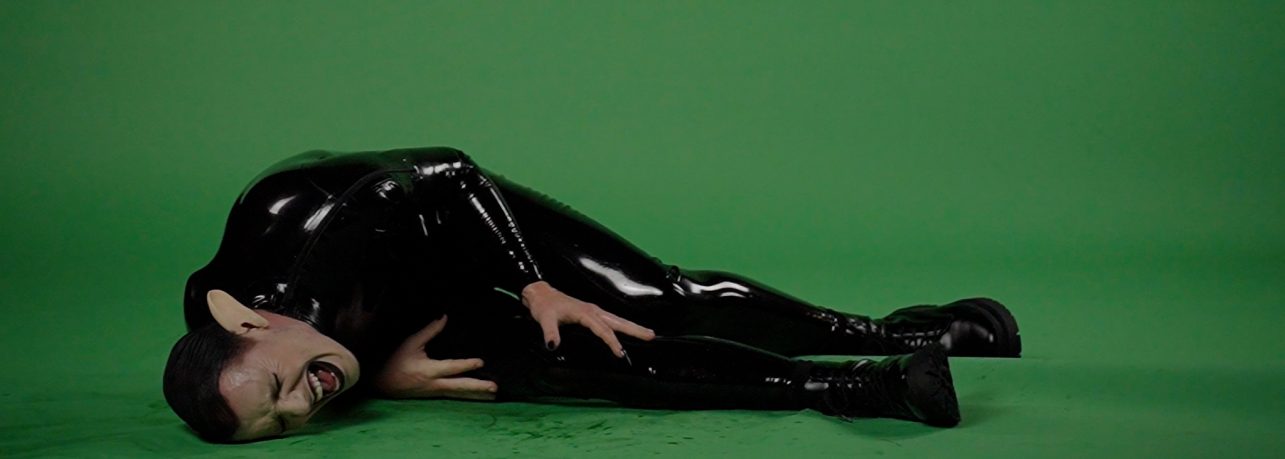
Mantas, did you choose theatre, or did it choose you?
At school, I was that activist who participated in various artistic activities. I played the guitar. I joined the drama club at the age of fourteen, and I really liked it there. After staging a play, we toured all over Lithuania, to other youth theaters. Fun times, lots of people. A friend who is a couple of years older, Arnas Ašmonas, now also a well-known actor, says one day, “I am going to study acting.” Oh, wow, such a profession exists, I want it too. Since then, I started to look at it more seriously and did some research.
Were you happy with the academy after you enrolled? Was everything as you imagined?
I called the first year, the year of Hogwarts: new city, new people, and you are in the academy from morning till night. I only missed maybe a few sessions; it was so amazing. After a while, that magic disappears, you get used to the regime, and things no longer surprise you. In general, I had a good time; perhaps I got a bit bored in the fourth year. I felt like I was missing a challenge. Maybe three years of studies would be enough. Maybe we could have touched on the film more. After all, there are other branches of acting, for example, clowning.
And as a spectator, does theater still surprise you?
I don’t have time to see everything, I rarely go to the theater as a member of the audience. I recently attended one play. It wasn’t like it surprised or shocked me much, but I told myself that I should visit the theatre more often. You can feel it the most during the award ceremonies. You listen to the nominations and realize that you haven’t seen most of the plays. It is a strange feeling. I should go to the theatre more often.
Last year you became the best young actor in Lithuania. How does it feel?
I was at the ceremony, we talked with my colleague Domantas, who was also nominated in the same category. He asked me where I was sitting. I told him that I was in the ninth row, and I asked him where he was. He told me that he was in the front row. Then I realized that I was definitely not going to win, because who would put the winner in the ninth row? We sat down with my girlfriend, and I told her: what a pity to find out that you’re not going to win right before the award ceremony; no more intrigue left. So, when I heard my name, I was really surprised, and in a slight shock. Maybe I didn’t value that award that much myself, but a lot of people, colleagues, and acquaintances wrote and congratulated me. Then I realized that the Cross really means something. I allowed myself to be happy that I received it for the role that I worked really hard to perfect. That means I am in the right place; all is well, and I am moving forward.
To be honest, after the award, I did not receive a single special offer, nor did my salary increase. Nothing changes, you just get more attention for one weekend. I told myself that right away. This way you don’t have any expectations and don’t become cocky.
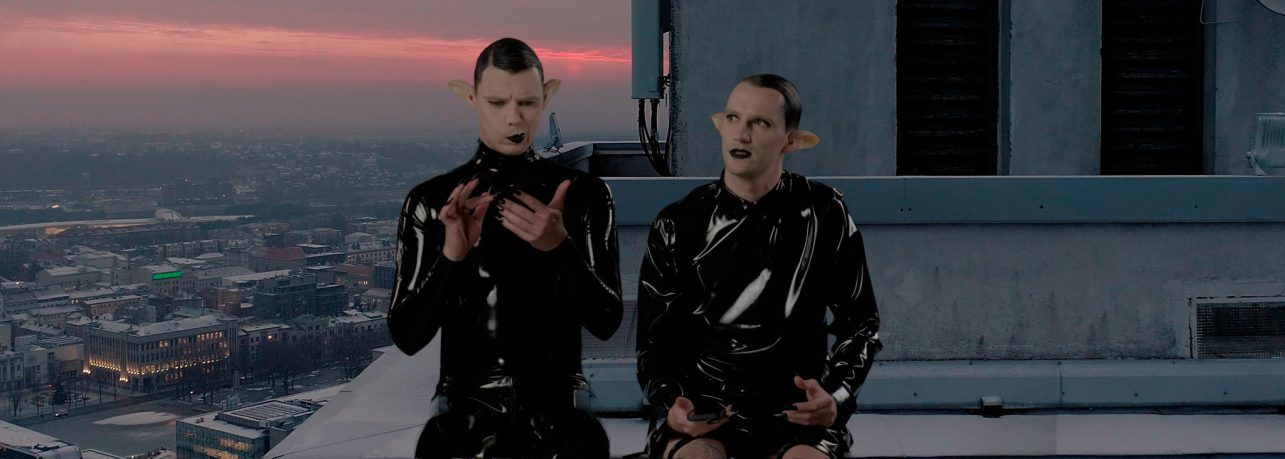
You are also active in the music scene. Do you do it because you like it, or because theatre doesn’t ensure the quality of life and busyness?
Yes, the theater is not that much money compared to the music scene. But in this case, money truly does not come first. A few years ago, my course leader Vidas Bareikis invited me to join his band. I actively performed with him, we played over a hundred shows, and I just fell in love with the music scene and learned to be in it.
The main thing is direct communication with the audience. Because there is a fourth wall in the theater, there are not many performances where you go to the audience and talk to them. Meanwhile, in music, you look straight into people’s eyes all the time, they look at you, you smile, and you communicate. I really miss this in the theater.
One more thing. Since I create songs and music myself, it is very important for me that I can speak from the stage with my text and not someone else’s. Of course, I also enjoy acting, so I think I find a nice balance by combining the two activities.
I read somewhere that people referred to you as “brother of Deividas Bendžius.” Interesting, I thought to myself. You are an actor and a singer, and your brother is a social media star. It appears that he is more famous than you. What is your relationship with social networks? Do you feel that they help your work? Maybe it would be easier to pursue a career only in social media.
I have nothing against the success of social media. I think it just helps other activities. The older generation may think that it is not prestigious, not cool, but I do what works best for me. In the theater, of course, your social media involvement is not very important, because the theater audience is a little different. But musical matters are different. This is a good place to spread your work and sell concert tickets.
I decided to interview you after all because of the theater, that is, because of the role in director Gintarė Minelgaitė’s Snow White, where you created the role of Grimm Everice. This is a bold interpretation of the Snow White’s character. Grimm seeks to save the world and stop the glaciers from melting, but the evil stepmother, just like in the fairy tale, will do everything to ruin Grimm’s life. It was Gintarė’s first time creating in a Lithuanian institutional theater, she brought many different experiences with her. What stuck with you after this process?
For me, this performance was probably the most unique in terms of work. There was a lot of filming. You come to a theatre rehearsal, but you are being filmed there. The on-stage action was also different. Less dramatic acting, more action stuff. It was very interesting. For example, this year in The Tempest we analyzed, rehearsed, and created the roles. Here, things were different. And the performance itself is very unique in the context of NKDT. I am glad it appeared. I hope it will find its audience. I really liked the process also because almost the entire company was young actors and colleagues. Joking, having a good time also makes work easier.
Such topics like gender equality, ecology, and LGBTQ+ rights, which Gintarė pointed out as important to her, were not immediately relevant for theater people, they had to get used to them.
I didn’t need to practice. I only had some ethics-related questions, for example, was it OK for me to play a transgender person without being one myself? Maybe you should invite a transgender person? Today, this topic is sensitive, I did not want to end up in the crossfire, and even more so, I did not want the role to turn into a parody. So, we decided that I will simply represent the position of those people, their opinions, and convey their thoughts. But I will not try to play that character too much. This was the most acceptable approach for me and Gintarė liked it too. The task of the video work was different, it was a cartoon, and everything was more emphasized. I think that made the combination work.
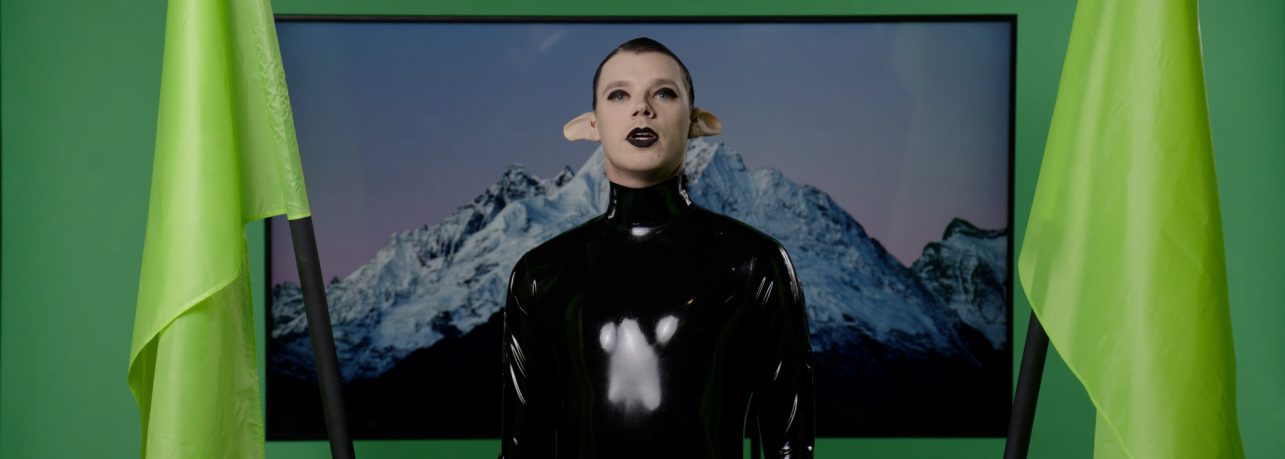
I watched Snow White on the third day of the premiere after the avalanche of critical comments had already swept through social media. Some people quite demonstratively left the theater during the intermission. Why do you think the play caused such a storm?
My brother came with his girlfriend and my girlfriend. They did not think that the play forced or propagated something. They viewed it as something natural. I don’t know why people left. Maybe it was boring? Maybe they felt like they were trying to be convinced of something. But it means they were not listening to what was being said. However, even if people leave, it means that the performance aroused some feelings and that is not a bad thing.
You have worked with many other interesting creators, including Gytis Padegimas and Agnius Jankevičius. What do you take away from them? What is important to you when working with a director?
I really like the work ethic when everything is structured, I mean when you can coordinate schedules and plan your time. I also like when there is no pressure, when there is no cloud of pseudo-drama over the rehearsals as if we are making great art. I find it more acceptable to come at the beginning of the rehearsal and make a plan of how much work you will do today, and how much tomorrow. Then you work and after the rehearsal ends you continue with your life. I understand that every director thinks his work is the most important, yet sometimes this self-importance causes rejection in me. I value balance more. After all, if something fails in one rehearsal, it might succeed in the other or the one after that. Of course, when you’re younger, fresh out of the academy, you’re very nervous: that’s it, it’s the end of the world, oh my God, I won’t be able to play that role. In fact, you will create and play what you need to, you just need to stress less and do more.
Looks like you could already advise debuting actors.
I could, but probably each of us sees this work in our own way and discovers our own methods.
How did your course fit into the theatre? How do veterans view debutants? Is there a difference between music and theater in this regard?
I haven’t heard anything like “stay in your place”; maybe someone said something behind my back, but I wouldn’t be surprised, it’s normal, especially in the first year when we were still students. This is not the case now, five years have passed, we managed to work with everyone. But I don’t pay much attention, I don’t listen to that gossip. You’re happier when you don’t know.
And in music, I’ve never heard anything like that either, except maybe from some sound engineers who radiate something like, “Ugh, what does this youngster want from me?” And when you need them to do something a little differently, they get angry. I think they’re just lazy and think that they are doing everything very well without my comments. But that’s just typical.
Everyone has a dream role. What is yours?
My best work so far is The Boy, for which I was awarded the Golden Stage Cross. But I hope that something even bigger, more significant is coming. And most of all I would like to play Romeo. I don’t know if that will come true.
Why Romeo?
I just see him as one of the more fun and very interesting male characters. Maybe to others, it may seem uninteresting, flat, and worn out, but not to me.
Have you thought about directing?
Yes, I have, and quite actively. I have slowly been preparing for this. In five years, I came to an understanding of what I would like from a director, how I would like to do things myself. Maybe after trying it, I’ll understand other directors better.
So, what are your plans for 2024?
The music-related plans are clear enough. New songs after New Year’s and a concert in Kaunas on Valentine’s day. And you can never be sure about the theatre; you never know what offers you will receive.
